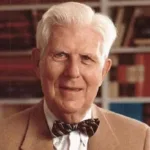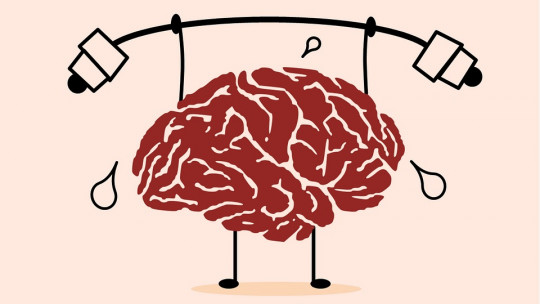
Believe or not in evolution, natural selection or genesis. A belief is capable enough to create an entire universe, a universe where there exists justice, where it is practiced lovewhere the happiness and where they train values. This is how jealousy is formed according to psychology, “through the beliefs, meanings and concepts that we attribute to everything we supposedly know.” A belief allows us to confer random and automatic meanings to almost everything that surrounds our existence and almost all events that are accessible to our senses. In this PsychologyFor article, we are going to help you understand in a much more orderly, beneficial and profound way what is jealousy in psychology.
What is jealousy according to psychology
José Ingenieros (2017) said that the ideal is a gesture of the spirit towards some perfection and that human evolution is a man’s continuous effort to adapt to nature, which evolves in turn. Therefore, ideals (beliefs) are natural formations, which appear when favorable circumstances determine the imagination. They are not entities mysteriously infused into men nor are they born by chance, they are formed like all phenomena accessible to our observation. They are effects of causes, accidents in universal evolution.
The function of jealousy
In most mammals including humans, this occurs adaptive instinct this one that allows us to save energy and vital forces necessary to preserve the species: falling in love.
Charles Darwin, in his book Expression of emotions in animals and man, 1872 I already made the observation that animals are attracted to each other, “they fall in love with each other.” Falling in love, proposed from a phylogenetic argot as a force capable of channeling our beliefs to some type of romantic perfection that, as José Ingenieros (1913) proposed, ideals (beliefs) are natural formations in which we are increasingly compelled. in order to survive.
Lovers yearn, crave, aspire, are heading or channeling themselves towards this romantic perfection just like animals, where there is a certain exclusivity with sexual partner operating under the expectation that the justice to this longing: “I hope that you love only me, I hope that you dedicate the time that I deserve, I need you to only see me, I want you to love only me, I want you to give yourself completely to me, if I “You love, you must agree with everything I decide because I am your partner, you should be alone with me and support me in everything I want because I am your partner.”
If all these expectations are not met, not only is the sexual partner observed as unjust, but this omission of justice begins to be extrapolated to everything that in some way can provide that security: people are unjust, men are unjust, women are unjust, the universe is unfair. Faced with this insecurity, by annulling the existence of the other – who also has their own expectations or beliefs about the universe – the hunt begins, we begin to guard our partner as if it were a piece of meat, an inanimate object that is capable of giving me the security that the world is the way I want it. This stubborn vigilance is jealousy a mechanism developed in evolution, an effect of a cause.
The manifestation of jealousy
Jealousy manifests itself when the person distrust your partner and questions her about her activities (university, work, friends, etc.). Expressing discomfort and anger when you find your spouse talking to someone or when he or she agrees to go out for coffee with a friend without him or her being present. The mistrust is greater when he does not get a confession from the person he was talking to or what they were talking about, who he saw the other day and what they did all that afternoon. The person who suffers from jealousy seems to want a daily report about his or her spouse and therefore constantly harasses him or her.
Jealousy can also be manifested by something that we will call “euphemisms” where something that is considered “bad, strange, abnormal, sick or pathological” is expressed, but in an almost hidden or disguised way. The person who suffers from jealousy does not demand or demand a report or report nor does he present himself as a distrustful person, but they have rude and degrading attitudes towards the couple, projecting all that insecurity and fear On the other hand, they also try to minimize the couple on a professional, social and/or personal level, they criticize the activities that the spouse does (such as some sport they practice, the type of music they listen to, the gym, parties, etc.) and It also ends up directly criticizing the person and their social environment (their physique, their personality, their values, their family or friends). in order not to feel inferior in any moment.
You can check if you are a jealous person using the following jealousy test.

What is jealousy due to?
After seeing what jealousy is, we will proceed to analyze the origin of jealousy. What they owe? Why do they occur? Helen Fisher (2004) believes that this characteristic of falling in love evolved for two reasons: to prevent our male ancestors from being unfaithful and raise other children, as well as prevent our ancestors from losing their potential husband and father of their children to a rival. This desire for sexual exclusivity allowed our ancestors protect your precious DNA by reserving almost all his time and energy for courting the loved one.
Where does jealousy come from?
In order not to have to constantly go back millions of years in evolution, we could just try to remember the origin of our beliefs: our childhood. —How did my parents love me? — Forming a psychoanalytic interpretation, we could speculate not from a plane of victimization where “everything I do now is because of my parents”, but from one that allows us to be creatively overcoming, understanding our mental structure to be able to restructure it later, through the integration of each of the significant events that constitute or configure my beliefs.
An eclectic touch it seems, since we also approach it together with a cognitive behavioral approach, that is, “understanding the origin of beliefs and thus being able to reevaluate whether or not they are advantageous for our human romantic evolution.” Returning to what José Ingenieros explained, where beliefs are a continuous effort by man to adapt to nature, we could infer that as humans we are sometimes involuntarily exposed to to a family and a society (nature), to which we are forced to adapt, so we intelligently create ideas to be able to do so.
For psychoanalysis, during our childhood we operate in a symbiotic relationship with our mother and in the same relationship we go through our primary narcissism, from which later our self-esteem arises (which is the assessment of oneself). Both have an inversely proportional relationship (when narcissism is high, self-esteem is low and vice versa).
In our early years we do not identify that there is an external world, everything pleasant “is me” and everything unpleasant is “not me” my mother is “me”, and thus narcissistic cells are formed and established in our psyche: if my mother gives me the pleasure when I cry because I feel that there is an increase in quantity (frustration/displeasure), coming from the desire of wanting to be given the pleasure (it could be a toy or food), I get pleasure and a drop in quantity (frustration /displeasure), my mother gave me pleasure (just like what happens with babies when they are breastfed, there is an increase in the amount of energy), I no longer feel frustration and I have created an idea, I have created a mechanism of evolution. I adapted, I conditioned, I learned that when I cry but they give me the breast, that when I kick they give me the pleasure, that when I sit idly with my arms crossed and frowning and not speaking to anyone, someone will come to comfort me and pamper me.
Why jealousy occurs
In the previous example, where the desire for justice in a relationship is mentioned, a being is presented as being unconscious of the origin of his ideas, of the origin of the expectation of justice in a romantic relationship, it is completely ignored that, just as when we are children, we have the belief that my partner (my mother) must show me that the world is safe and that I can trust others knowing that this couple will remove all beliefs of threat from me, we have a longing for exclusivity.
Just like when we cry for the mother’s breast, we maintain this passive and narcissistic love relationship, where I do not tolerate frustration, where I do not tolerate “no” and where there can be no injustice (My partner cannot be unfair: he cannot say no to me, he cannot cancel an appointment, he cannot share with someone else because that time is for me, he cannot reject me a call, he cannot leave me unseen messages ) and this is when the hunt mentioned above begins, jealousy. This evolutionary mechanism will make us respond to the threat.
Jealousy is not love
In jealousy we are afraid of losing that exclusivity, we are afraid that an injustice will be committed, we have fear that love will end, fear of never finding happiness or losing it, fear that all immaculate values will not be practiced in my life. We are afraid of losing, so we start looking for clues, control our new love object so that he does not abandon us or betray us, we begin to believe in this, that we are in control, that we are gods of our own universe, where the existence of the other is annulled and per se their beliefs of justice, love, happiness and values, without considering that when we experience fear we try to exercise control even if this aggravates things and that is why we lie to ourselves, that is why we prefer to maintain our most primitive beliefs, because it hurts, it hurts to know imperfect.
Ambrose Bierce (1999) defined jealousy as the fear of losing something that if it were lost the fear would not be worth keeping.
— Why try and force someone to stay to love us? — Even after discovering that our partner did not meet our expectations of exclusivity (justice, love, happiness, values, etc.) and chose to direct his life accompanied by another being, we seek to maintain this relationship.
We fear losing this partner because we are worried that someone will take him away from us because he is more handsome, more successful, more talented according to our beliefs. That is to say, although we are capable of loving him and competent to renounce our narcissism and that passive love, I understand and respect the freedom and existence of the other, this may decide to leave and resign to this.
You may be interested in how to reduce jealousy or what to do if your partner shows jealousy.

pathological jealousy
First of all, it will be necessary to see if jealousy is a symptom of a psychological disorder or not. For the diagnostic and statistical manual of mental disorders DSM 5 (2013), jealousy is a delusional disorder subtype, where the central theme of the individual’s delusion is that his or her spouse or lover is unfaithful. Definition that can elucidate significantly the concept of jealousy as the cause of our beliefs, since it also defines delusions as fixed beliefs that are not susceptible to change in light of the evidence against them, this means that they are not easy to contradict. by simple justified contradiction.
When our beliefs become rigid or inflexible is when danger is predicted for our health, since the sole reason that our beliefs cause us anxiety, fear or pain in a perhaps almost chronic way can open a wide and varied picture of pathological comorbidity ( any mood disorder, eating disorders, sleep disorders, substance use disorders).
But the inflexibility of our beliefs alone is not enough to determine a diagnosis of celotypy ; Let’s add two key points to be able to discern and differentiate delusional disorder with jealousy subtype from non-pathological jealousy.
1. Beliefs
My beliefs can be inflexible and rigid, therefore they can create an unrewarding and unpleasant environment for me, causing fear or anxiety due to the insecurity that my partner will abandon or cheat on me. “I have the belief that my partner will be unfaithful to me” But what do I do with this fear or anxiety? This is where we orient ourselves to action, since the sole rigid belief that creates discomfort in us is not enough to create a diagnosis.
As explained previously, jealousy is an evolutionary mechanism, a survival mechanism by which most mammals protect and protect ourselves. Being this way, we could allude to the fact that most of us (human beings) use it and thus protect our DNA: We all suffer from jealousy at some point. For example, when we were children we felt jealous of the love that mother gave to one of our brothers, as psychoanalysis explains where the latency stage of psychosexual development (which occurs around 7 years of age) is when we begin to having to win the love of others, mainly that of mom (giving drawings, giving letters, getting good grades).
We have also felt jealousy at work because I see that my boss really likes the new employee who I believe is more attractive and successful, although in reality this is not the case. We all suffer from jealousy, only you have to know how to identify them and for this we can use the following premise: “jealousy is the fear of losing something” and that something is unconsciously stored in people (fear of losing security, respect, love, prestige, etc.). Since most of the time we are aware that we lose “someone” (Juanito/María) but we are not aware that we lose “something” with this being.
To the accept that at some point we feel threatened or lower leads to a process of improvement in the level of functioning (quality of life). By accepting it we stop pretending that it is false and we stop disguising them by projecting them onto the partner or making them feel inferior. Accepting that it is a survival mechanism allows us to put it into dialogue, therefore, the opportunity to heal it and reduce the anguish and/or anxiety that this may generate.
It’s not wrong to feel jealous, what’s wrong is what we do with it. As explained, our beliefs are also formed by that symbiotic relationship I had with my mother in childhood where she had the opportunity to escape my primary narcissism. We feel jealous because we feel afraid and, by being creatively overcoming, we give ourselves the opportunity to take responsibility for our beliefs learned and stop victimizing ourselves for what my parents have done or if we suffer a premature loss that causes us fear now in our adolescence or as adults, let us give ourselves the opportunity to heal this experience.
2. The action
Action is everything we do behaviorally in reaction to our beliefs. If I am afraid that he will be unfaithful to me, I will destroy my partner’s phone I am going to prohibit him from going out with these friends, I’m going to forbid him to go to work, I’m going to hurt myself so he can stay with me, I’m going to chase him to find out what he’s doing. These actions can lead to a deterioration in the person’s functioning. Action, denial and the security and inflexibility of what is believed despite evidence that contradicts it, can be symptoms of a delusional disorder: jealousy.
This article is merely informative, at PsychologyFor we do not have the power to make a diagnosis or recommend a treatment. We invite you to go to a psychologist to treat your particular case.
If you want to read more articles similar to What is jealousy in psychology we recommend that you enter our Clinical Psychology category.
Tips
- The assistance or intervention of a professional is the first of the first recommendations that I make, discovering the entire background of our discomforts must be directed by a psychology professional.
Bibliography
- Bierce, A. (2017). Devil’s Dictionary. Verbum Publishing.
- Darwin, C. (1946). The expression of emotions in man and animals (Doctoral Thesis).
- Fisher, H. (2004). Why we love. Taurus Publishing House, Alfagura
- Engineers, J. (2010). The mediocre man (Vol. 54). Linkgua.








